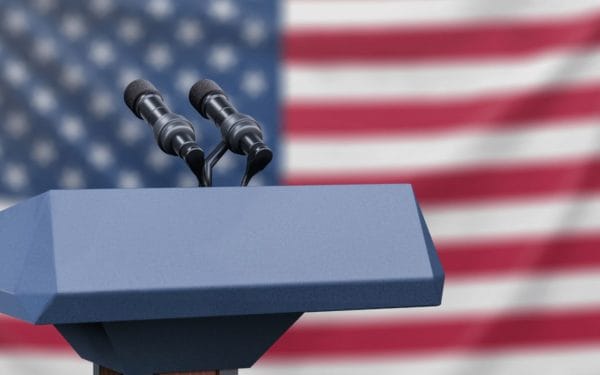By Aleta Margolis, Founder and President, Center for Inspired Teaching
It’s a hard time to be a teacher in the United States. Our students need adults who create safe spaces for learning and model the qualities of supportive leaders to help them get through these scary times. But what we’ve heard and seen in the media over the past month doesn’t exactly inspire confidence. And in many cases teachers are the ones who have to help young people process the chaos.
The first presidential debate offered a lesson in what it looks like when someone refuses to listen or show respect for another’s viewpoints. The vice presidential debate offered a lesson in what it looks like – and what it doesn’t – to be prepared, informed, and downright brave enough to honestly address the topic at hand. The final presidential debate last night shone a light on the difference between well-researched debating and uninformed bullying.

We, and likely many of our students, now have vivid images of people in positions of power talking over one another, obfuscating, being dismissive, and of standing up to bullies and supporting beliefs with facts. These are teachable moments, and the lessons these moments hold are critical to a broader focus on the skills and dispositions we must nurture in our young people if they are to carry our democracy forward.
The president recently attacked approaches to teaching history that look critically at our past. He announced his plans to establish “The 1776 Commission” to promote a “patriotic education” in our country’s schools. The events of the past month underscore the need to support teachers in rebelling against any efforts to infringe on the kind of student-centered, truth-based education our children deserve.
This is the moment to ensure our students experience an education in which they engage in civic discourse, active listening, and thoughtful debate, on topics that are comfortable and those that are uncomfortable. After all, our democracy was born from dissent. Our students need to learn to apply their intellects, do their research, and face the issues – including the troubling issues in our country’s past and the history we’re making right now.
What might this look like in action?
When creating a Classroom Constitution with her third graders, a teaching colleague asked her students to list the things they wanted to be able to do in their class. At the top of the list was the right to speak. The teacher encouraged her students to exercise this right. And they did, all at the same time. Students enjoyed their freedom at first, then realized they needed to speak louder and louder in order to be heard over the other 28 individuals who were simultaneously exercising their right to speak.
The teacher built on this learning experience to pose the question, “Where’s the place where your rights infringe on someone else’s rights?” She then engaged her young students in a discussion about the responsibilities that accompany rights. As a result, her students named their Class Constitution, “Our Rights and Responsibilities” and put “speaking and listening” at the top of the list.
During a recent session of Speak Truth, a program that brings together high school students from public, public charter, and private schools to engage in student-facilitated conversations on contemporary issues, a student told his classmates, “I heard what you said, and it’s making me change my mind.” Students were discussing the question “Are local and federal governments going about police reform effectively?” and were analyzing recent news articles and the proposed Justice in Policing Act of 2020. One student commented, “A lot of times in social movements, people have to say really radical things to meet in the middle. I know ‘defund the police’ can be weaponized…but there needs to be a radical statement to make people pay attention.”
By challenging young people to connect past and present, and delve deeply into the difficult issues that affect their lives, school can equip them with the tools to face these issues head-on and lead us wisely into a better future.
School can be a place that invites questions about where we’ve been and where we’re going, including our country’s long history of systemic racism – with one group securing its own freedom at the expense of the freedom, and often the lives, of another. Instead of telling students about American history, we can engage them as informed citizens and ask them: Why do you think the 19th Amendment passed or the Montgomery Bus Boycott happened or the “Star Wars” plan was created? What would you have done if you’d been Susan B. Anthony or Rosa Parks or Ronald Reagan?
By challenging young people to connect past and present, and delve deeply into the difficult issues that affect their lives, school can equip them with the tools to face these issues head-on and lead us wisely into a better future.
School can be a place that invites questions about where we’ve been and where we’re going, including our country’s long history of systemic racism – with one group securing its own freedom at the expense of the freedom, and often the lives, of another. Instead of telling students about American history, we can engage them as informed citizens and ask them: Why do you think the 19th Amendment passed or the Montgomery Bus Boycott happened or the “Star Wars” plan was created? What would you have done if you’d been Susan B. Anthony or Rosa Parks or Ronald Reagan?
A truly patriotic education helps young people wrestle with our nation’s complicated history. Doing so does not strip away confidence or hope in our nation. On the contrary, it instills confidence and hope by building in young people the knowledge of how our country has both created and solved problems in the past. And it teaches students the analytical and problem solving skills they’ll need to look tough issues in the face and solve them when it’s their turn to lead our country.
